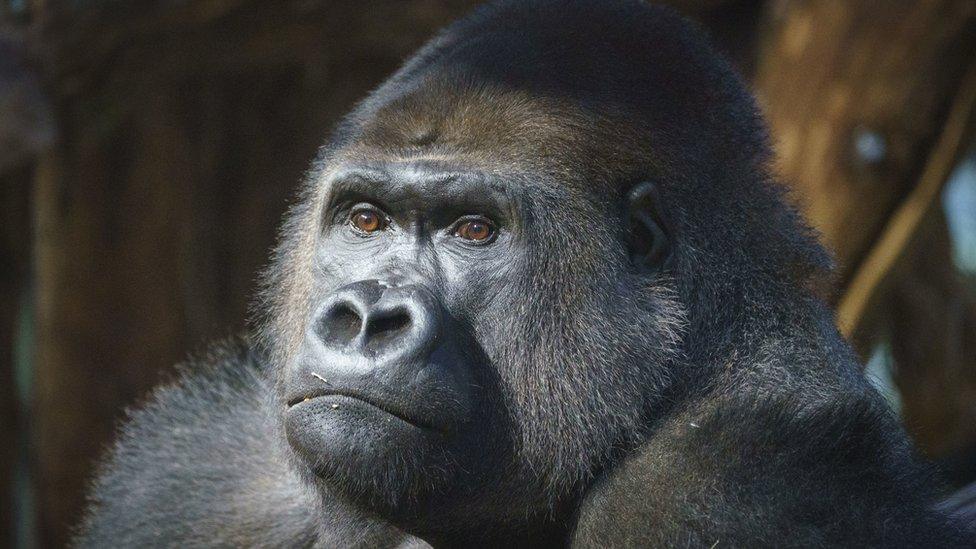London Zoo: First vulture chick hatches in more than 40 years
- Published
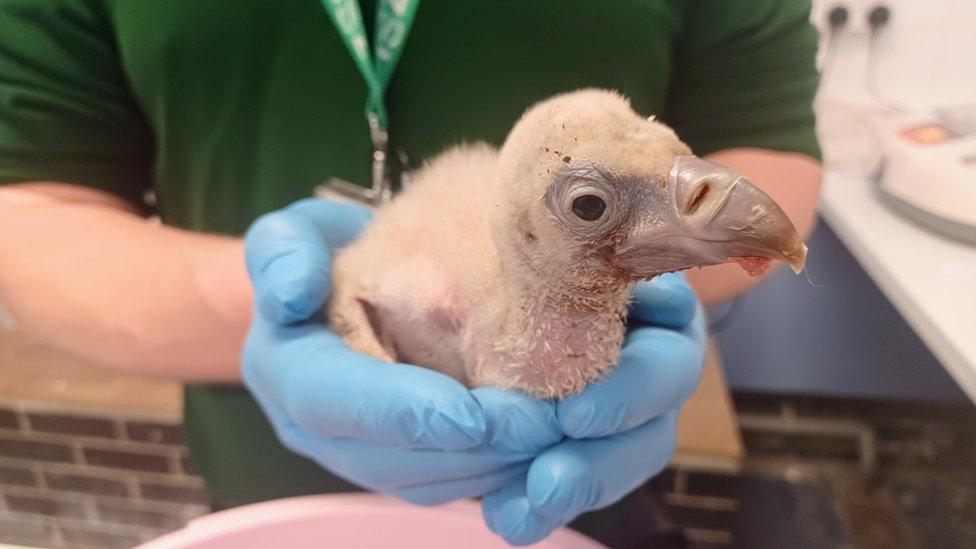
Little Egbert weighed as much as a bar of soap when newly hatched
Zookeepers at London Zoo have celebrated the "brilliant" arrival of the first vulture chick to hatch at the site in more than 40 years.
Egbert, a critically endangered fluffy grey Ruppell's griffon vulture chick, weighed the same as a bar of soap when hatched.
Its mother, Philomena, laid her egg in mid-January but staff were concerned when previous eggs failed to hatch.
To save Egbert, staff put the egg in an incubator.
A wooden dummy egg was left for Philomena's to sit on in a nest, while the real egg was being incubated along with a squishy bird toy and monitored closely.
Ruppell's griffon vultures are the world's highest-flying birds, documented to have reached heights of 10,973m above sea level, and were one of the first animals at London Zoo when it opened almost 200 years ago.
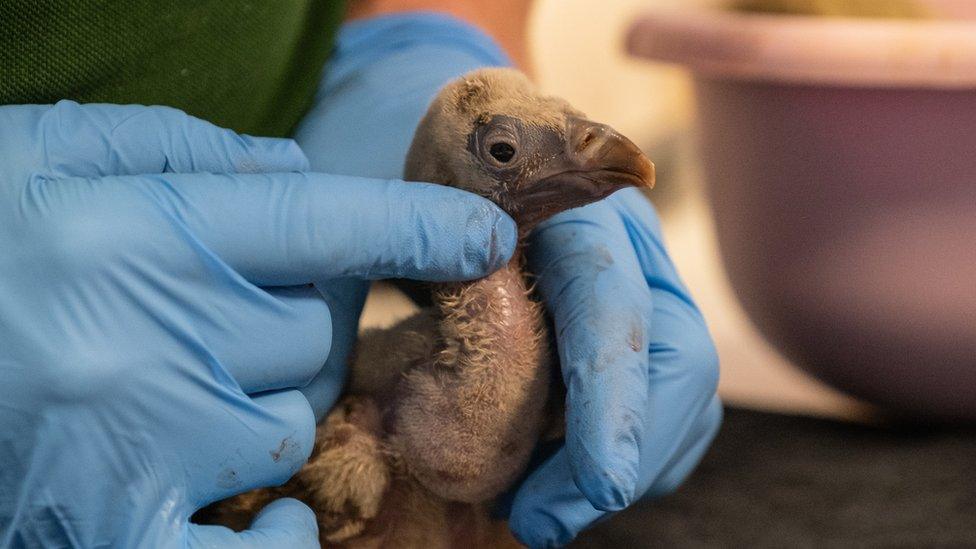
A wooden dummy egg was left in Philomena's nest while Egbert was waiting to hatch in an incubator
"Since hatch, Egbert has gone from strength to strength and is now weighing a healthy 265g," said vulture keeper Robert Harland, who was on "eggwatch" when the chick first hatched.
"We've been feeding the little one a meaty protein shake of raw quail, mouse and rat meat which will help the chick put on a hefty seven kilograms over its first three months.
"Once the chick has fledged, the zoo vet team will send a feather off for DNA testing to determine the bird's sex, male or female," Mr Harland continued.
The youngster is an important part of the European Breeding Programme for the critically endangered species, a collaborative programme between conservation zoos to ensure, "a genetically diverse, healthy back-up population of the species", he said.
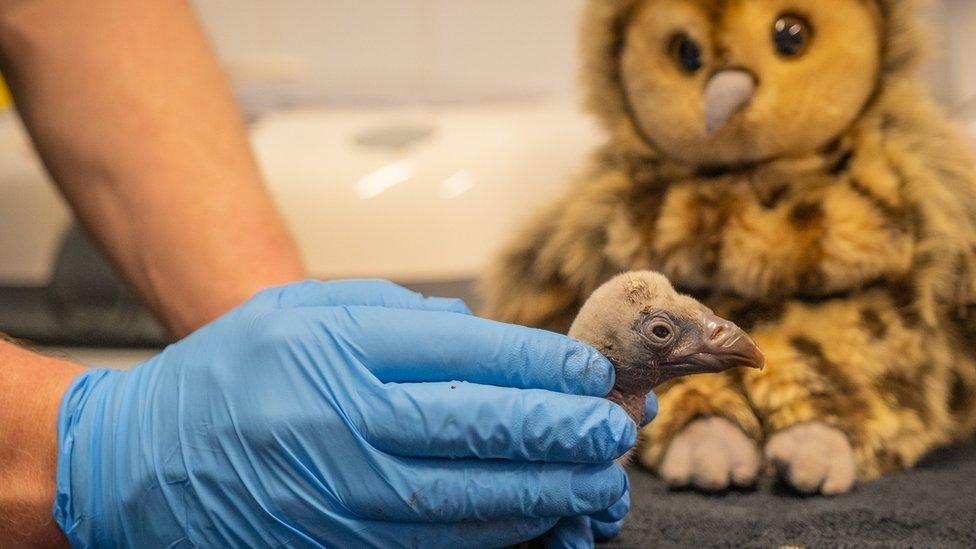
Egbert has been given a squishy toy in his incubator
The remaining population has plummeted in recent years as international conservation charity, Zoological Society of London (ZSL), which manages London Zoo, worked closely with Saving Asia's Vultures from Extinction (SAVE) to protect vultures in southern Asia.
"Egbert's arrival is a brilliant conservation success, and shows the power of conservation zoos to restore and protect threatened species across the world," Mr Harland said.
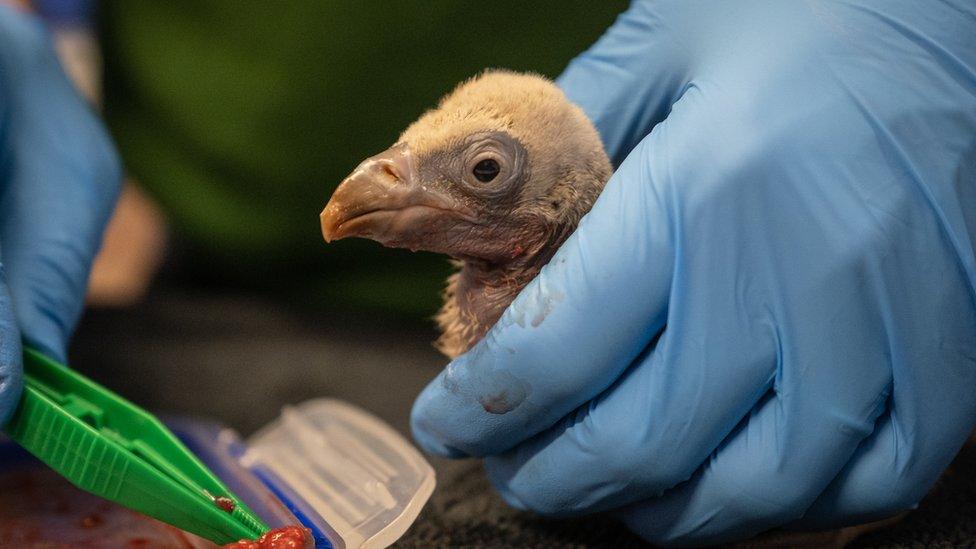
Egbert has been fed with a meaty protein shake of raw quail, mouse and rat meat

Follow BBC London on Facebook, external, Twitter , externaland Instagram, external. Send your story ideas to hellobbclondon@bbc.co.uk, external
Related topics
- Published19 March 2023
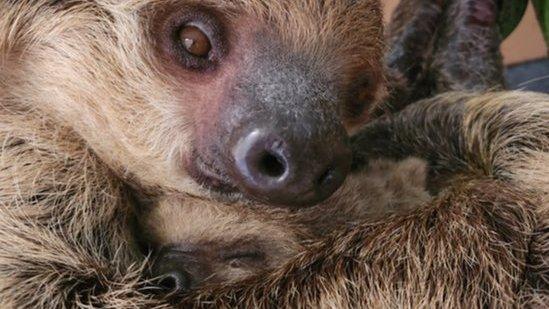
- Published3 March 2023
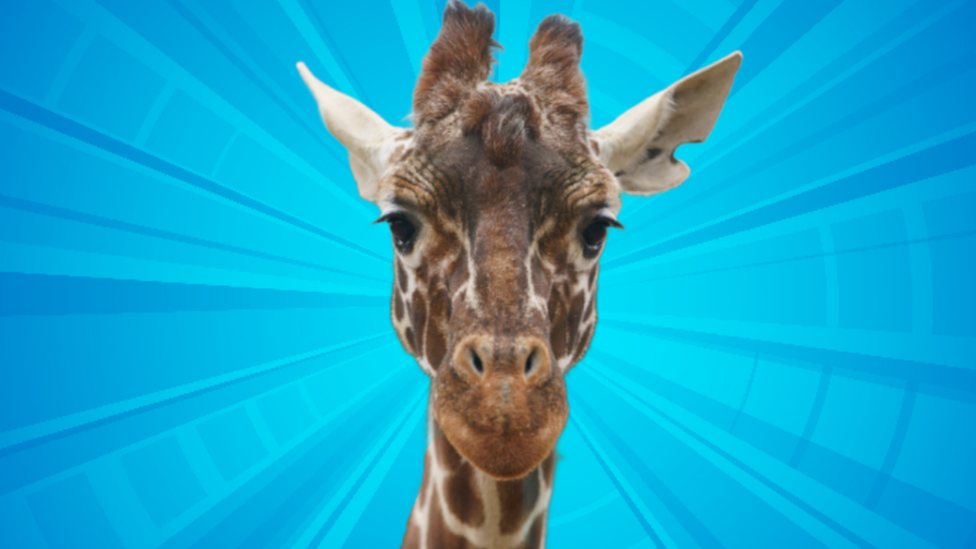
- Published25 November 2022
